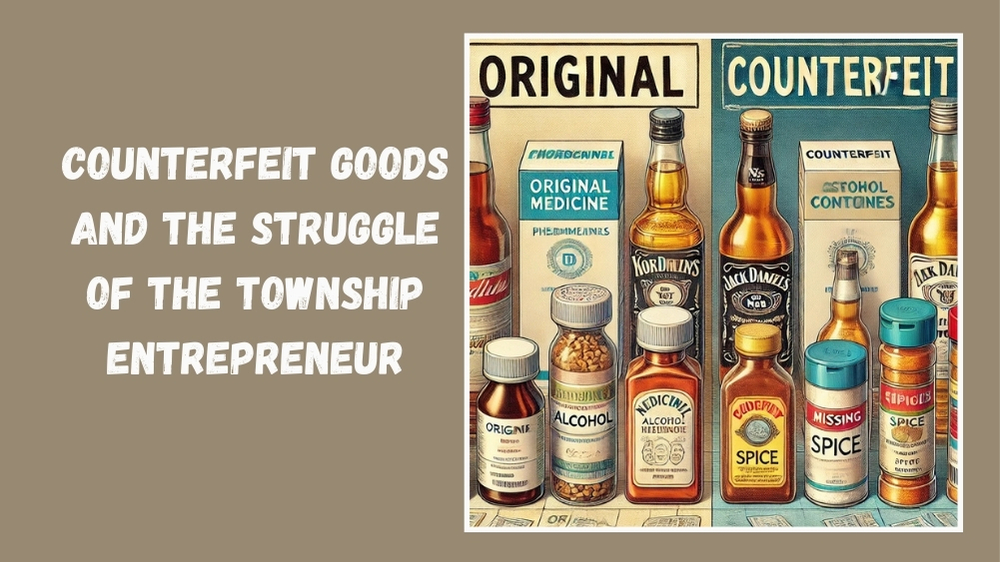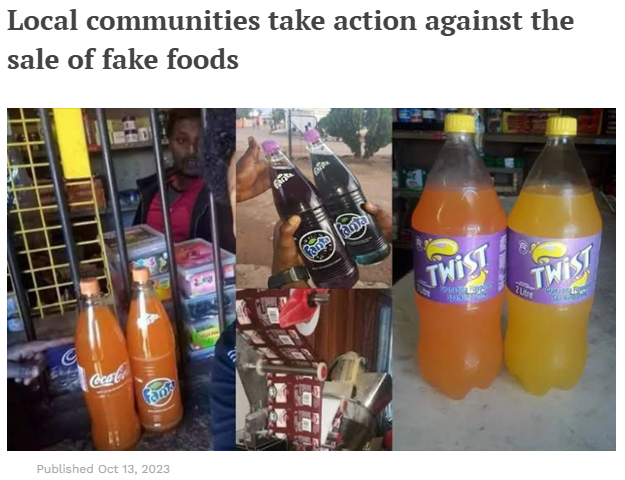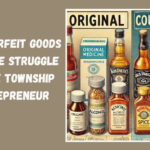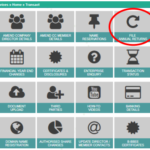
The township economy is a vibrant tapestry of small businesses and a lifeblood of the communities in which they are located. These businesses range from spaza shops to manufacturing enterprises and together they are believed to be worth over R100 billion annually. Spaza shops alone contribute approximately R40 billion to the economy, serving as vital economic hubs in township communities. However, a growing shadow looms over this vibrant economy – the illicit trade of counterfeit goods.
The counterfeit goods market in South African townships is estimated to cost the legitimate economy R7.8 billion annually. Approximately 15-20% of products sold in spaza shops may be counterfeit. Between 2018 and 2019, when counterfeiting was not this prevalent, the South African Revenue Services confiscated counterfeit goods to the value of R3.7 billion from 6 828 busts – but this only represents a small fraction of all counterfeit goods to be coming into the county.

The Appeal of the Counterfeit Market
The appeal of counterfeit goods is undeniable. They offer lower production costs and higher profit margins, making them a tempting proposition for unscrupulous traders. By undercutting legitimate businesses, these counterfeiters can attract more consumers, including many residents of townships. Townships are particularly targeted because consumers in that market are more price-sensitive and business activities in that market have the least focus from authorities.
But the allure of quick profits comes at a steep cost. The township economy, already grappling with challenges like limited access to finance and infrastructure, is particularly vulnerable to the impact of counterfeit goods.
The Impact on Township Entrepreneurs
Legitimate township businesses, often family-owned and operated, face a myriad of challenges:
- Eroded Profit Margins: Counterfeit goods, often of inferior quality, can be sold at significantly lower prices. This price undercutting erodes the profit margins of legitimate businesses, making it difficult for them to compete. For example, 750ml bottle of spirits carry an excise duty of R90 and if these bottles are priced at R120 are likely counterfeit. .
- Loss of Revenue: As consumers opt for cheaper counterfeit alternatives, legitimate businesses suffer a significant loss of revenue. This can lead to reduced income, job losses, and, in some cases, business closures.
- Damaged Reputation: Counterfeit goods can tarnish the reputation of legitimate brands. When consumers encounter substandard products, they may associate the brand with poor quality, even if the genuine product is of high quality. This can lead to decreased consumer trust and loyalty.
- Limited Access to Capital: Legitimate businesses often struggle to access financing due to various factors, including lack of collateral and credit history. Counterfeiters, on the other hand, may operate outside the formal financial system, making it easier for them to acquire capital.
- Inequitable Competition: Counterfeiters often operate with impunity, avoiding taxes and regulations that legitimate businesses must comply with. This creates an uneven playing field, giving counterfeiters an unfair advantage.

A Call to Action
To be licensed to run a spaza shop, the business needs to obtain a municipal trading license that requires:
- Stronger Enforcement: Law enforcement agencies must intensify their efforts to crack down on the production, distribution, and sale of counterfeit goods. We have discussed in this article the steps that spaza shops need to take to be compliant with regulations, especially those that deal with packaged and fresh food. Without stronger enforcement, the business environment is not made level, and those who initially comply, will also stop if they see no benefit. The myth that South African spaza shops cannot compete was debunked when the extend to which counterfeit goods are sold in spaza shops was understood.
- Consumer Awareness: Educating consumers about the dangers of counterfeit goods and the importance of supporting legitimate businesses is crucial.
- Government Support: Government initiatives, such as providing financial assistance, technical training, and access to markets, can empower township entrepreneurs to compete effectively.
- International Cooperation: Collaborating with international organizations and other countries can help dismantle global counterfeit networks.
- Industry Collaboration: Industry associations and brand owners can work together to share information, develop best practices, and support legitimate businesses.
Conclusion
The counterfeit goods trade in South African townships represents a significant challenge to legitimate businesses and poses risks to health, and recently to school children specifically. While the informal economy plays a vital role in township communities, the prevalence of counterfeit goods undermines economic development and public safety. Through coordinated efforts between businesses, communities, and government agencies, legitimate enterprises can fight back and create a more sustainable township economy. By taking decisive action, we can protect the livelihoods of township entrepreneurs, safeguard the integrity of the township economy, and ensure a brighter future for South Africa.
Further Reading
For other guides and articles on governance, please refer to this section of our site.



